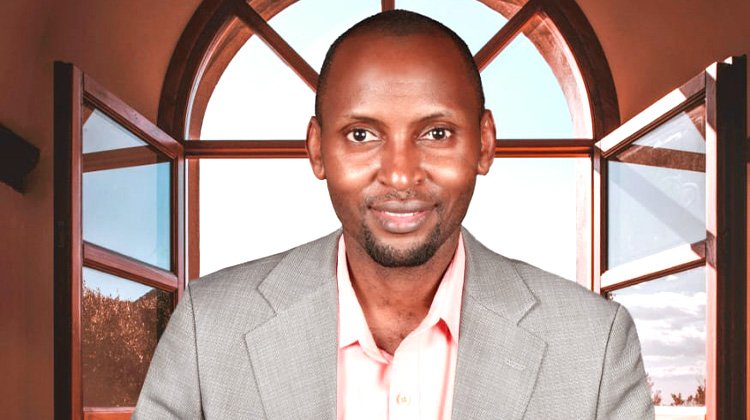Many residents of Machakos County have grown disillusioned with traditional political figures who seem to repeat the same promises every election cycle but deliver little tangible change. The 2022 elections saw Senator Agnes Kavindu win the senatorial seat, but her performance has sparked mixed reactions from the public. While she came in with a wave of goodwill and experience, critics argue that her tenure has not lived up to the hopes of a county yearning for transformation. The issues of youth unemployment, poor infrastructure, and limited access to healthcare persist. These problems, year after year, have left the electorate cynical and desperate for a candidate who brings a real chance at impactful change.
In this environment of political fatigue and growing frustration, the entrance of Felix Wambua into the senatorial race feels like a gust of fresh air. People want to believe again. They want a leader who listens and delivers—not just talks. Machakos County, with its rich culture and potential for growth, is truly at a political crossroads. The choices made in the next election will either propel the county forward or keep it in the same loop of stagnation.
Felix Wambua isn’t entering an empty ring. The senatorial race in Machakos is heating up with notable names expressing interest. Agnes Kavindu is expected to defend her seat, and her incumbency gives her an edge in visibility and resources. However, many voters feel that her influence has waned and that she may not have the same grassroots energy that initially propelled her to victory.
Then there’s Albanus Muthama, another seasoned politician who contested in 2022. Muthama is known for his bold political style and has strong networks, but some see him as part of the old guard—effective in rhetoric, but lacking in action.
Perhaps most significantly, there are strong whispers that CS for Labour and former Machakos Governor Alfred Mutua is eying the senatorial seat. Mutua has a long political resume and deep-rooted networks, not to mention a loyal base. But this also comes with political baggage. Many critics point to allegations of mismanagement during his time as governor. While Mutua might have name recognition, it’s uncertain whether that will convert to votes in a more politically aware and engaged electorate.
Against this backdrop, Felix Wambua is positioning himself as a breath of fresh air—untainted, visionary, and determined to serve. He represents a new generation of leaders who aren’t trapped by old alliances or burdened by past political missteps.
Felix Wambua’s campaign doesn’t rely on big billboards or flashy slogans. Instead, his strength lies in his direct connection to the people. From hosting town halls in rural villages to attending local community events, Wambua is building his support from the ground up. People don’t just see him as another politician—they see him as one of their own. He understands their problems not from reports or newspaper articles but from lived experiences and daily interactions.
Wambua’s approach is unique because he isn’t waiting for media headlines to shape his image. Instead, he’s letting real work do the talking. Whether it’s helping youth groups find funding, mediating disputes at the local level, or visiting hospitals to understand healthcare gaps, he’s involved in ways that matter. His growing popularity stems from this authentic involvement in the day-to-day life of the county.
What also sets Felix apart is his leadership style—he listens. Unlike traditional politicians who swoop in during campaign seasons with pre-written speeches, Wambua spends time hearing people out. He takes notes. He asks questions. He makes people feel seen and heard, which in today’s political climate is a superpower.
In a recent community forum in Kathiani, Wambua spent over four hours just listening to residents’ voices, concerns ranging from broken water systems to insecurity. Instead of making vague promises, he laid out realistic, short-term steps that he would advocate for even before elections. This transparency and accountability have become central to his campaign identity.
Machakos has a large, youthful population that has often been left out of meaningful political decision-making. Wambua is betting big on this demographic, knowing that if young people show up in numbers, they can decide the election. His team has been holding forums in universities, colleges, and social gatherings, educating the youth not just about politics but about civic responsibility.
He’s not just asking for votes—he’s asking for involvement. His manifesto includes the formation of a youth-led advisory council, internship opportunities in public offices, and startup funding for young entrepreneurs. This kind of engagement is powerful in a political landscape where youth are usually ignored until the final campaign rally.
One of the biggest turn-offs for voters is the murky world of political funding and the ‘money first, service later’ culture that dominates Kenyan politics. Felix Wambua has taken a public stand on clean campaigns. He openly declares his funding sources and invites scrutiny. He insists on transparency and challenges other candidates to do the same.
His refusal to buy votes has been controversial in some circles, but it’s also winning him loyal followers who are tired of temporary handouts and long-term suffering. “We don’t want wheelbarrows; we want policies,” said a supporter during a rally in Mwala. That sentiment is spreading.


